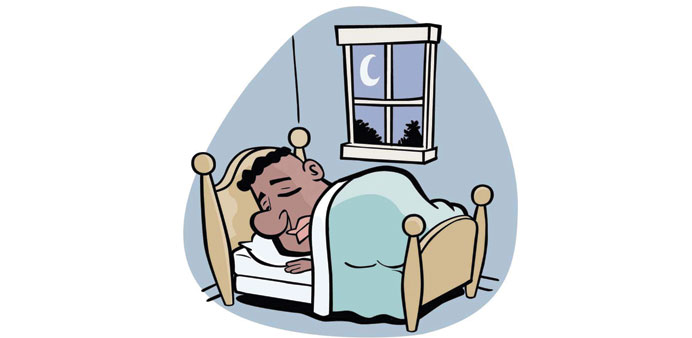By Oliver Burkeman/London
When a Huffington Post infographic explaining the secret of the perfect night’s sleep popped into my Twitter feed the other day, I paid close attention – firstly because I’m a sporadic insomniac, and secondly because if there’s one thing I’ve learned in life, it’s that random infographics that go viral are always completely reliable.
A good night’s rest, it explained, “starts long before you get into bed”: you’ve got to stop drinking alcohol three hours before lights out, stop eating two to three hours before, and not exercise close to bedtime, either.
Taken together, these tactics might seem to require leaving the office at 3.30pm every day. But they’re fairly typical of modern anti-insomnia advice, which is all about good “sleep hygiene”: controlling your behaviour and environment by eliminating caffeine, eschewing electronics in the evening, keeping your bedroom cool, quiet and dark; and on and on and on.
Yet there’s reason to be suspicious of all this: ask a good sleeper for her secret, and she won’t reel off a list of elaborate evening rituals or bedroom modifications; she’ll probably just look blank and say, “Nothing”. That might be because she’s lucky enough not to need sleep hygiene.
But then again, as the dissenting sleep expert Guy Meadows points out, it could be because there’s something wrong with the sleep hygiene approach itself.
As every insomniac knows, the one way to guarantee wakefulness is to try really hard to fall asleep – which is why, by 5am, once you’re resigned to the next day being ruined, it’s often easy to doze off.
Could getting obsessed with sleep hygiene have a similar self-defeating effect?
“The problem with all these props is that they erode people’s trust in their natural ability to fall asleep,” says Meadows, author of The Sleep Book and its accompanying smartphone app.
The danger of fixating too much on sleep hygiene (Earplugs? Check! Blackout curtains? Check! Warm milk? Check!) is that it reinforces the belief that you’re reliant on such things.
Even when these techniques work, Meadows argues, they do so by rendering your sleep more fragile, and more easily disrupted the first night you’re away from home, or for some other reason can’t get everything just so.
There’s a paradox entailed in trying to do anything about this situation: after all, even if you gave up every sleep hygiene tactic tonight, you’d still be doing it in order to try to sleep, so you’d still be at risk of trying too hard.
Meadows’ own advice – based on mindfulness and Acceptance and Commitment Therapy – involves techniques for describing, without judgment, the thoughts that cascade through the insomniac mind at night.
I’ve found them effective. But not because they’re a silver bullet; on the contrary, they’re a way to ease up on the search for a silver bullet (and thus drift into slumber instead).
It’s not that it’s wrong to say that using your iPad in bed might lead to worse sleep, or that people sleep better in colder, darker rooms. It just doesn’t follow that consciously implementing these strategies in your own life will have the desired effect.
And if your sleep hygiene’s far from perfect? Don’t let it keep you up at night.– Guardian News and Media

